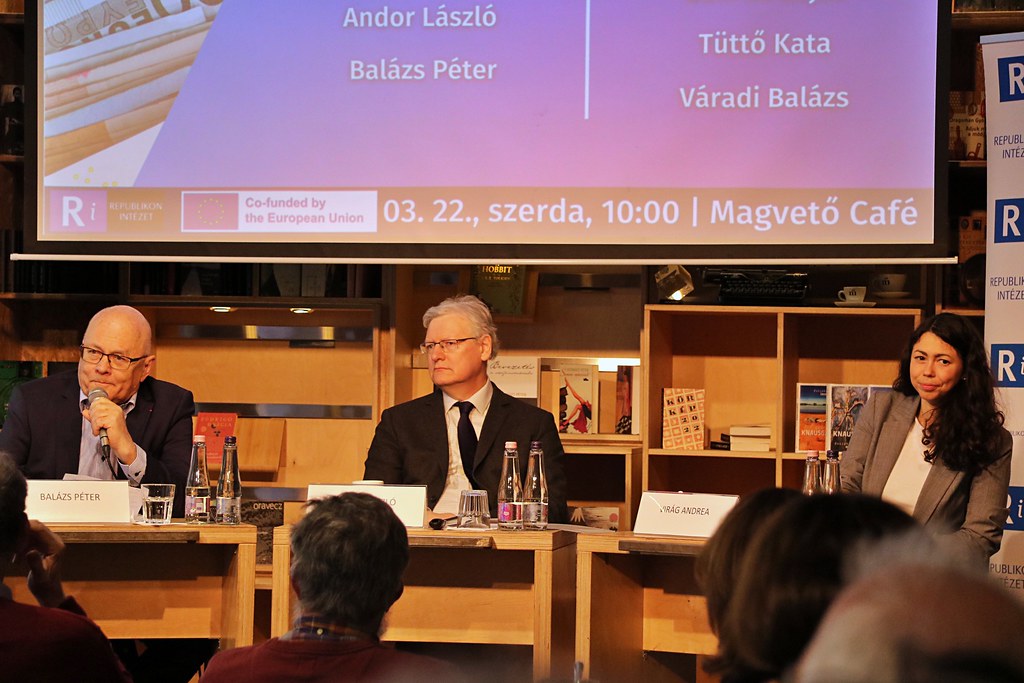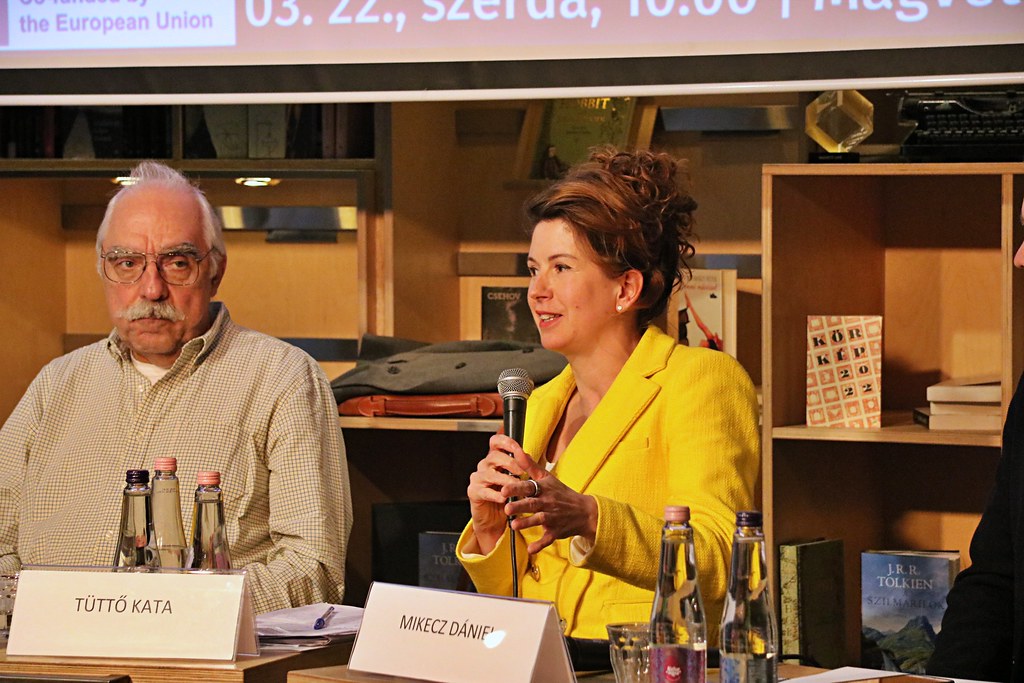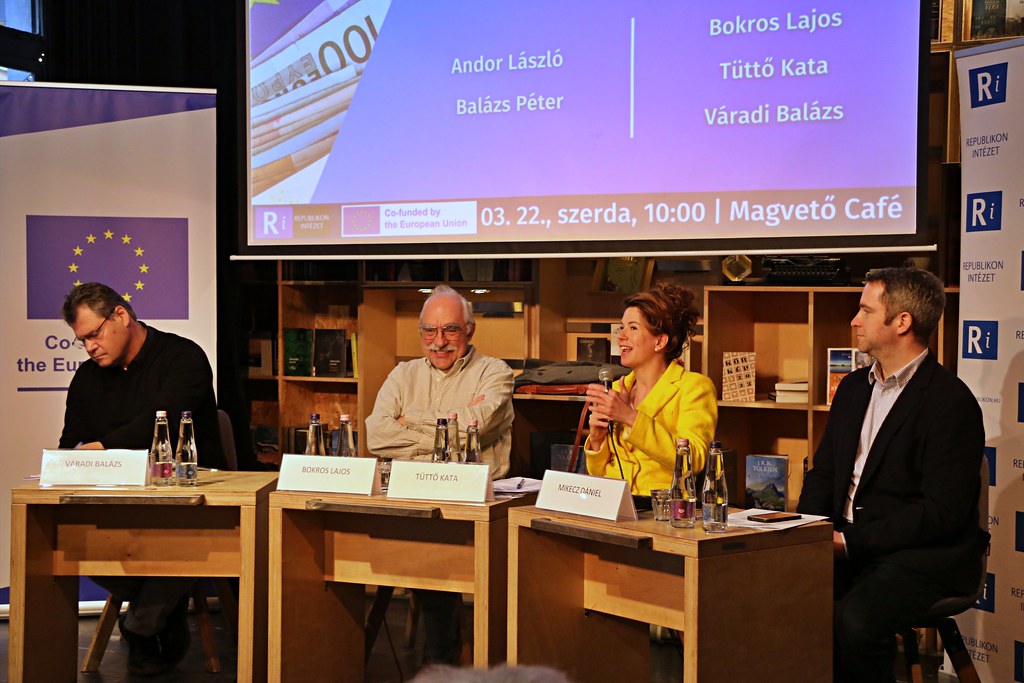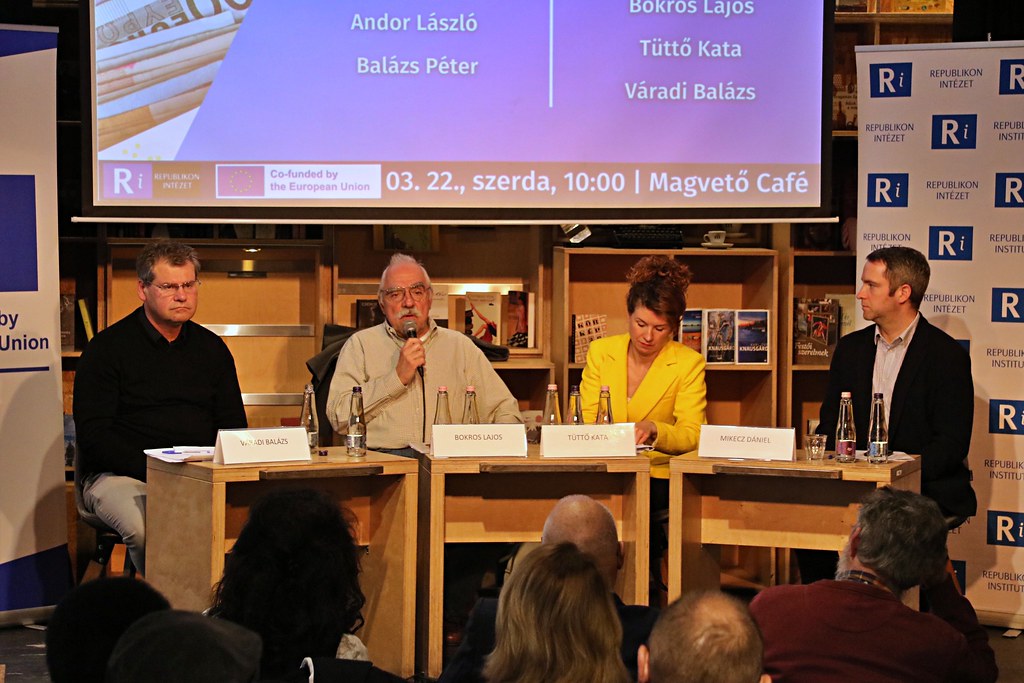

In the opening speech of the conference, Gábor Horn, chairman of the board of trustees of the Republikon Foundation, spoke about how the funds coming from the European Union operate as a dysfunctional system in many respects, and its lack of structure means that money is spent on activities, which should not be done, while the necessary support is often lacking. At the same time, EU funds are essential for Hungary’s development.
Section 1: The present and future of Hungarian – EU relations
Péter Balázs, professor emeritus of the CEU, former foreign minister and EU commissioner, spoke about the fact that Hungary’s EU memebership will be 20 years old next year, but during this time, not a single government managed to achieve a peaceful coexistense with the EU. According to him, the view that says that the EU takes away national sovereignty from the member states is not true, the opposite is happening, the EU helps the memebers to develop independently. At the same time, the Union’s big problem is that it is not capable of quick action, it can only ensure the implementation of long-term projects. Despite all of this, in recent years, due to the outbreak of Covid and the war, the Union was able to develop an actionable strategy to reduce the damage.
László Andor, candidate of economics, secretary general of FEPS, former social commissioner of the European Comminion, spoke about how the distribution of EU funds is a seemingly very complicated process, which has become more difficult in recent years due to several factors. It seems that a change has taken place in the Union prevents the member states from abusing the uncontrollable flow of funds, so nowadays, as we perceive it now, the distribution of funds has started to be tied to the rule of law conditions. He also thinks that unnecessary investments have a significant negative impact on people’s opinion of EU funds.
Section 2: Balance of the last 20 years
Kata Tüttő, Deputy Mayor of Budapest, pointed out that Budapest’s infrastructure would be significantly behind if the European Union had not provided the capital with a huge amount of money for its development. According to her, EU membership is also important because good practices in urban development and unban policy can be adopted from other member states, and if the Union provides resources for these, it will definietly pay off. However, without the resources, these innovations could be realized, or only very slowly, over a long period of time.
According to Lajos Bokros, university professor at CEU and Babes-Bolyai University, former finance minister and EP representative, the amount of money we receive from the European Union is not something we should celebrate, since 30 percent of those huge sums are stolen, 30 percent are wasted, and the remaining 40 percent properly utilized in Hungary. But according to him, the origin of the source has no role in this, it only depends on the government, how effective the source management will be.
Balázs Váradi, leading researcher of the Budapest Institute, emphasized that he is not convinced that Hungary was benefited by the many billions of forints received from the European Union. He considers all of this to be difficult question to investigate, since we do not know what would have happened without the subsidies. According to him, when a country receives money from abroad, negative side effects follow, and these also occured in the case of Hungary. The severity of the negative effects depends ont he government of the given country, and since corruption is very significant in Hungary, there were more negative effects than positive effects.

Co-founded by the European Union.

















